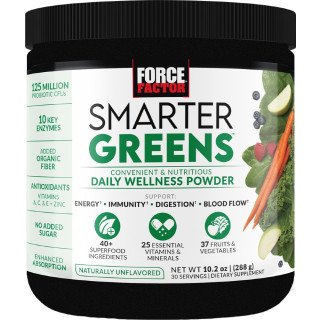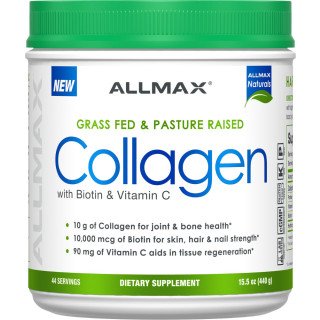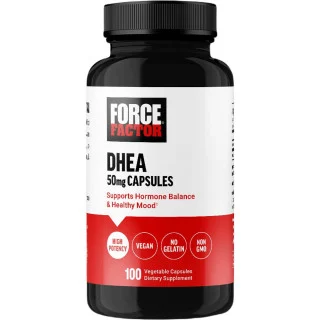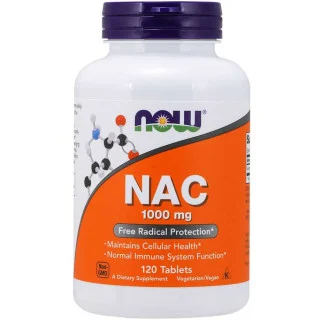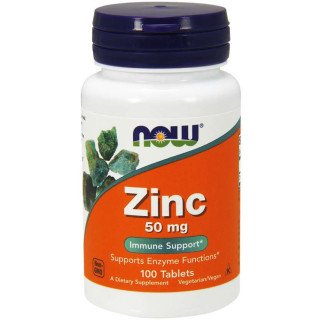Training performance capacity seems to be a major goal for many of today's leading products. Three ingredients, listed below,...

JOINT HEALTH
JOINT HEALTH
The objective is to sustain joints healthy, which is crucial for flexibility, mobility, and movement without discomfort.
Specialty
Ingredients
Specialty Ingredients
Goal OVERVIEW
Several factors influence joint health, encompassing age-related deterioration, genetic predisposition, occupational risks from physically demanding jobs, potential joint issues due to sports injuries, added joint stress from overweight or obesity, joint-damaging inflammation, the role of nutrition in mitigating inflammation and safeguarding joints, and exercise’s contribution to maintaining lubricated and robust joints. Most people, especially young people, don’t think about joint health until there’s an issue. Anyone can develop an issue, particularly if engaging in high-risk activities.
What You Should Know
Healthy joints are crucial for overall well-being as they enable seamless movement, safeguard bones, and ensure comfort. Enhance joint health with these tips: stay active to bolster strength and flexibility, maintain a healthy weight to alleviate joint stress, consume a nutritious diet for joint maintenance, steer clear of smoking to prevent joint damage and arthritis, manage stress to mitigate joint discomfort, prioritize sufficient sleep for healing, and consult your doctor for tailored solutions if experiencing joint pain – various treatments are available to suit your needs.
FOOD FOR THOUGHT
Prioritizing your joint health involves proactive measures. Shedding excess weight if needed, adopting a nourishing diet, and engaging in regular exercise are pivotal steps. Effective stress management contributes as well. For added support, consider utilizing joint aids like braces or compression sleeves. Supplements containing glucosamine and chondroitin could also prove beneficial. Elevate your joint health by embracing these strategies.

SHAGANDHA® BY SABINSA
Shagandha® is a standardized powdered extract from the roots of Withania somnifera, commonly known as ashwagandha. Shagandha® offers various health benefits, including reducing stress, anxiety, and insomnia while improving cognitive function, reducing inflammation, and boosting the immune system. It is available in capsules, powders, and teas and is often used in herbal mixtures. Considered to be a breakthrough Adaptogenic.
Sponsored Content
FAQ
Maintaining joint health is crucial for overall mobility and well-being. Exercising that promotes joint flexibility, strength, and stability can help prevent joint pain and reduce the risk of injuries.
Here are some exercises that are beneficial for joint health:
1. Low-Impact Cardiovascular Exercises:
- Walking: A low-impact exercise that promotes cardiovascular health without putting excessive stress on the joints.
- Cycling: Cycling is gentle on the joints and provides a good cardiovascular workout.
- Swimming: Swimming is a non-weight-bearing exercise that provides a full-body workout and reduces joint impact.
2. Stretching and Flexibility Exercises:
- Tai Chi: This ancient practice involves slow, flowing movements that promote balance, flexibility, and joint health.
3. Strength Training:
- Resistance training using light weights or resistance bands can help strengthen muscles around the joints, providing better support and stability.
- Bodyweight exercises like squats, lunges, and modified push-ups can also improve joint strength.
4. Pilates:
- Pilates focuses on core strength, flexibility, and body alignment, which can support joint health.
5. Range of Motion Exercises:
- Perform exercises that move joints through their full range of motion to maintain flexibility and prevent stiffness.
6. Aquatic Exercises:
- Water aerobics and aquatic exercises are gentle on the joints while providing resistance for muscle strengthening.
7. Balance and Stability Exercises:
- Exercises that challenge your balance, such as standing on one leg or using a balance board, can help improve joint stability and reduce the risk of falls.
8. Foam Rolling:
- Foam rolling can help release muscle tension and improve joint mobility by targeting fascia (connective tissue).
9. Isometric Exercises:
- Isometric exercises involve contracting muscles without joint movement, which can help improve joint stability.
10. Joint-Friendly Strength Training:
- Focus on exercises that are easy on the joints, such as leg presses, seated rows, and machine-based exercises.
It’s important to listen to your body and choose exercises suitable for your fitness level and joint conditions. If you have joint pain or a history of joint issues, consider consulting a healthcare professional or a physical therapist before starting a new exercise program. They can provide personalized recommendations and modifications to ensure your exercise routine supports your joint health goals.
Consuming a diet rich in nutrients that support joint health can help prevent inflammation, reduce pain, and maintain the integrity of your joints.
Here are some foods that are beneficial for promoting joint health:
1. Fatty Fish:
- Salmon, mackerel, sardines, and trout are high in omega-3 fatty acids, which have anti-inflammatory properties and may help reduce joint pain and stiffness.
2. Berries:
- Blueberries, strawberries, and cherries are rich in antioxidants called anthocyanins, which have anti-inflammatory effects.
3. Leafy Greens:
- Spinach, kale, and other leafy greens provide nutrients like vitamins C and K, which are important for collagen synthesis and bone health.
4. Nuts and Seeds:
- Walnuts, flaxseeds, and chia seeds are sources of omega-3 fatty acids and antioxidants that support joint health.
5. Ginger:
- Ginger has anti-inflammatory properties and may help reduce pain and swelling associated with arthritis.
6. Turmeric:
- Curcumin, the active compound in turmeric, has potent anti-inflammatory effects and may help alleviate joint pain.
7. Green Tea:
- Green tea contains antioxidants that can help reduce inflammation and support overall health.
8. Citrus Fruits:
- Oranges, grapefruits, and other citrus fruits are high in vitamin C, which is important for collagen production and cartilage health.
9. Olive Oil:
- Extra virgin olive oil contains oleocanthal, a compound with anti-inflammatory properties similar to ibuprofen.
10. Broccoli:
- Broccoli is rich in sulforaphane, a compound that may help slow the progression of osteoarthritis.
11. Garlic:
- Garlic contains compounds that may have anti-inflammatory effects and help support joint health.
12. Whole Grains:
- Whole grains like brown rice, quinoa, and whole wheat provide fiber and nutrients that support overall health.
13. Dairy or Dairy Alternatives:
- Low-fat dairy products or fortified dairy alternatives can provide calcium and vitamin D for bone health.
14. Lean Proteins:
- Lean proteins like poultry, fish, and beans provide amino acids necessary for collagen production and muscle health.
15. Tart Cherry Juice:
- Tart cherry juice has been shown to have anti-inflammatory and pain-relieving effects.
Remember that a well-balanced diet that includes a variety of nutrient-rich foods is important for overall health, including joint health. Maintaining a healthy weight can also reduce the strain on your joints and help prevent joint issues. Suppose you have specific concerns about your joints or are experiencing joint pain. In that case, it’s a good idea to consult a healthcare professional or a registered dietitian for personalized guidance and recommendations.
If you’re considering taking supplements for joint health, it’s important to consult with a healthcare professional before adding any new supplements to your routine. They can provide personalized guidance based on your health needs and existing medical conditions. That being said, here are some supplements that are commonly used to support joint health:
1. Glucosamine and Chondroitin:
- Glucosamine and chondroitin are compounds found naturally in cartilage. These supplements are often taken together to support joint health and may help reduce pain and improve joint function, especially in individuals with osteoarthritis.
2. Omega-3 Fatty Acids:
- Omega-3 fatty acids, commonly found in fish oil supplements, have anti-inflammatory properties that can help reduce joint pain and inflammation.
3. Turmeric or Curcumin:
- Curcumin is the active compound in turmeric and has potent anti-inflammatory effects. It may help alleviate joint pain and stiffness.
4. Boswellia:
- Boswellia, also known as Indian frankincense, has anti-inflammatory properties that may help reduce joint pain and improve mobility.
5. MSM (Methylsulfonylmethane):
- MSM is a sulfur compound that may support joint health by providing essential cartilage and connective tissue nutrients.
6. Collagen:
- Collagen is a protein that supports the structure of joints, tendons, and ligaments. Collagen supplements help improve joint function and reduce pain.
7. Vitamin D:
- Vitamin D is important for bone health; maintaining strong bones can also support joint health.
8. Vitamin C:
- Vitamin C is necessary for collagen production, which is essential for maintaining healthy joints and connective tissues.
9. Calcium:
- Calcium is important for bone health and can help support joint function.
10. Ginger Extract:
- Ginger has anti-inflammatory properties and may help reduce joint pain and swelling.
11. Green Tea Extract:
- Green tea contains antioxidants that may support joint health by reducing inflammation.
12. SAM-e (S-Adenosylmethionine):
- SAM-e is a compound that plays a role in joint health and may help reduce pain and inflammation.
Remember that supplements should not replace a balanced diet and a healthy lifestyle. Addressing joint health through a comprehensive approach that includes a nutrient-rich diet, regular exercise, weight management, and other healthy habits is important. If you’re considering supplements, consult with a healthcare professional to determine the right supplements for your individual needs and to ensure they won’t interact with any medications you may be taking.
Joint health issues extend beyond mere pain. Common symptoms include swelling, tenderness, stiffness, especially after rest, and reduced mobility. The joint might feel warm, appear reddish, and exhibit weakness or cracking sounds. This can impact daily tasks, causing fatigue and possibly radiating discomfort to nearby areas. Various conditions, from arthritis to injuries, can cause these symptoms. Consult a healthcare professional to ensure early intervention and optimal care for persistent or worsening signs.
Related Videos
Articles
Let's look at three popular benefits of Teacrine® but first, let's create some context. Compound Solutions, the suppliers of TeaCrine®,...
By understanding the unique properties and benefits of regular CarnoSyn® and SR CarnoSyn®, you can choose the supplement that best...












